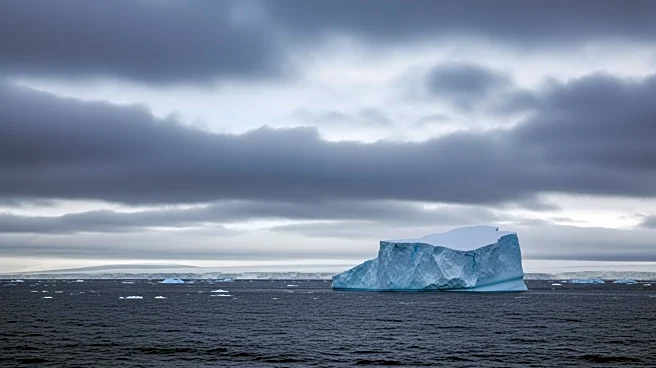What's Happening?
A study published in Nature by scientists from the Australian National University and the University of New South Wales warns of potential abrupt and irreversible changes in Antarctica's ice, oceans, and ecosystems. The research highlights the interlinked
changes already underway, stressing Earth's climate systems, rising sea levels, and fragile ecosystems. The West Antarctic Ice Sheet is particularly vulnerable, with its collapse potentially raising global sea levels by over three meters. The study emphasizes the urgent need to reduce greenhouse gas emissions to prevent catastrophic consequences for future generations.
Why It's Important?
The potential collapse of the West Antarctic Ice Sheet poses a significant threat to global sea levels, endangering millions living in coastal cities and low-lying regions. The study underscores the critical role of Antarctica in regulating Earth's climate and ocean systems. The loss of Antarctic sea ice and changes in ocean circulation could have severe impacts on marine ecosystems and wildlife, including emperor penguins and krill. The research calls for immediate action to limit global warming and protect Antarctic ecosystems from further damage.
What's Next?
The study advocates for rapid reduction of greenhouse gas emissions to limit global warming to 1.5 degrees Celsius. It calls for governments, businesses, and communities to factor in the observed changes in Antarctica into future planning for climate change impacts. The research highlights the need for coordinated international efforts to address the challenges posed by climate change and protect vulnerable ecosystems.
Beyond the Headlines
The study raises ethical considerations regarding humanity's responsibility to protect the environment and prevent irreversible damage to Earth's climate systems. It highlights the interconnectedness of global ecosystems and the potential long-term consequences of inaction. The research serves as a wake-up call for urgent climate action to safeguard the planet's future.















